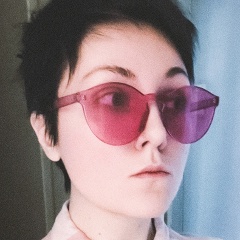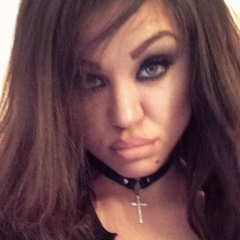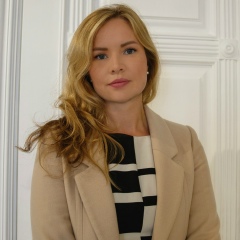Мастерская Петра Фоменко приглашает на лекции в выходные!
2 февраля (сб) 13:00 (!!)
Лекция Алексея Машевского. «Тьмы низких истин мне дороже…»
Парадоксы реалистических открытий Пушкина 1830-х гг.
К 1830 году Пушкин окончательно переходит в своем творчестве на позиции реализма, или, как он сам определял, на позиции «поэзии действительности». Человек, его чувства, поступки рассматриваются теперь поэтом в контексте определяющих их обстоятельств, сверяются с исторической реальностью и социальной практикой. Касается ли это любви или творчества, Пушкин ориентируется не на «идеал», а на то, что он сам удостоверяет как наблюдатель/исследователь жизни. Тем загадочнее выглядит появление написанного в 1830 году стихотворения «Герой», в котором диалектика «низких истин» и «возвышающего обмана», казалось бы, разрушает реалистическую установку. Что считать реальным: «низкие истины» социальной действительности или «возвышающий обман» нравственного императива? Так важнейшим мотивом поздних стихов Пушкина становится поиск выхода из позитивистской ловушки современной эпохи, свободно оперирующей массивами научных данных, но отказавшейся всерьез говорить о Боге, Истине, Красоте.
3 февраля (вс) 14:00 (!!)
Лекция Алексея Машевского. «Где ж правота?..»
Идея «возвышающего обмана» приводит Пушкина к проблеме гения и злодейства. В «Маленьких трагедиях» поэт обнаруживает, что в основе наших пороков лежат «доведенные до конца» добродетели, высокие принципы, делающиеся инструментом насилия над природой. Волюнтаристское навязывание жизни своего идеала способно превратить рыцаря – в скупца, адепта справедливости – в завистника, художника – в прелюбодея, героя – в богохульника.
«Маленькие трагедии» Пушкина
Бесплатные пригласительные: https://biletyotkati.ru/list/org/2
Оповещения транслируются в телеграмм-канал https://telegram.me/biletyotkati
#ялюблютеатр #яидувтеатр#newteatr#theatre #Театр #спектакль#студенты #просвещение #музыка#классическаямузыка
2 февраля (сб) 13:00 (!!)
Лекция Алексея Машевского. «Тьмы низких истин мне дороже…»
Парадоксы реалистических открытий Пушкина 1830-х гг.
К 1830 году Пушкин окончательно переходит в своем творчестве на позиции реализма, или, как он сам определял, на позиции «поэзии действительности». Человек, его чувства, поступки рассматриваются теперь поэтом в контексте определяющих их обстоятельств, сверяются с исторической реальностью и социальной практикой. Касается ли это любви или творчества, Пушкин ориентируется не на «идеал», а на то, что он сам удостоверяет как наблюдатель/исследователь жизни. Тем загадочнее выглядит появление написанного в 1830 году стихотворения «Герой», в котором диалектика «низких истин» и «возвышающего обмана», казалось бы, разрушает реалистическую установку. Что считать реальным: «низкие истины» социальной действительности или «возвышающий обман» нравственного императива? Так важнейшим мотивом поздних стихов Пушкина становится поиск выхода из позитивистской ловушки современной эпохи, свободно оперирующей массивами научных данных, но отказавшейся всерьез говорить о Боге, Истине, Красоте.
3 февраля (вс) 14:00 (!!)
Лекция Алексея Машевского. «Где ж правота?..»
Идея «возвышающего обмана» приводит Пушкина к проблеме гения и злодейства. В «Маленьких трагедиях» поэт обнаруживает, что в основе наших пороков лежат «доведенные до конца» добродетели, высокие принципы, делающиеся инструментом насилия над природой. Волюнтаристское навязывание жизни своего идеала способно превратить рыцаря – в скупца, адепта справедливости – в завистника, художника – в прелюбодея, героя – в богохульника.
«Маленькие трагедии» Пушкина
Бесплатные пригласительные: https://biletyotkati.ru/list/org/2
Оповещения транслируются в телеграмм-канал https://telegram.me/biletyotkati
#ялюблютеатр #яидувтеатр#newteatr#theatre #Театр #спектакль#студенты #просвещение #музыка#классическаямузыка
Workshop of Peter Fomenko invites you to lectures at the weekend!
February 2 (Sat) 13:00 (!!)
Lecture by Alexei Mashevsky. "The darkness of low truths is dearer to me ..."
The paradoxes of Pushkin’s realistic discoveries of the 1830s.
By 1830, Pushkin finally moved in his work to the position of realism, or, as he himself determined, to the position of "poetry of reality." The man, his feelings, actions are now considered by the poet in the context of the circumstances that determine them, are checked against historical reality and social practice. Whether it concerns love or creativity, Pushkin focuses not on the “ideal”, but on what he himself certifies as an observer / researcher of life. All the more mysterious is the appearance of the poem “Hero” written in 1830, in which the dialectic of “low truths” and “uplifting deception”, it would seem, destroys the realistic attitude. What is considered real: the "low truths" of social reality or the "elevating deception" of the moral imperative? So the most important motive for Pushkin’s later poems is the search for a way out of the positivist trap of the modern era, freely operating with arrays of scientific data, but refusing to seriously talk about God, Truth, Beauty.
February 3 (Sun) 14:00 (!!)
Lecture by Alexei Mashevsky. "Where is the truth? .."
The idea of “uplifting deception” leads Pushkin to the problem of genius and villainy. In The Little Tragedies, the poet discovers that our vices are based on “completed to the end” virtues, high principles that become an instrument of violence against nature. The voluntaristic imposition of the life of one's own ideal can turn a knight into a miser, an adherent of justice into an envious person, an artist into an adulterer, a hero into a blasphemer.
"Little Tragedies" by Pushkin
Free invitations: https://biletyotkati.ru/list/org/2
Alerts are broadcast on the telegram channel https://telegram.me/biletyotkati
#i love the theater #youduvtheatre # newteatr #theatre #theatre #performance # students #enlightenment #music #classical music
February 2 (Sat) 13:00 (!!)
Lecture by Alexei Mashevsky. "The darkness of low truths is dearer to me ..."
The paradoxes of Pushkin’s realistic discoveries of the 1830s.
By 1830, Pushkin finally moved in his work to the position of realism, or, as he himself determined, to the position of "poetry of reality." The man, his feelings, actions are now considered by the poet in the context of the circumstances that determine them, are checked against historical reality and social practice. Whether it concerns love or creativity, Pushkin focuses not on the “ideal”, but on what he himself certifies as an observer / researcher of life. All the more mysterious is the appearance of the poem “Hero” written in 1830, in which the dialectic of “low truths” and “uplifting deception”, it would seem, destroys the realistic attitude. What is considered real: the "low truths" of social reality or the "elevating deception" of the moral imperative? So the most important motive for Pushkin’s later poems is the search for a way out of the positivist trap of the modern era, freely operating with arrays of scientific data, but refusing to seriously talk about God, Truth, Beauty.
February 3 (Sun) 14:00 (!!)
Lecture by Alexei Mashevsky. "Where is the truth? .."
The idea of “uplifting deception” leads Pushkin to the problem of genius and villainy. In The Little Tragedies, the poet discovers that our vices are based on “completed to the end” virtues, high principles that become an instrument of violence against nature. The voluntaristic imposition of the life of one's own ideal can turn a knight into a miser, an adherent of justice into an envious person, an artist into an adulterer, a hero into a blasphemer.
"Little Tragedies" by Pushkin
Free invitations: https://biletyotkati.ru/list/org/2
Alerts are broadcast on the telegram channel https://telegram.me/biletyotkati
#i love the theater #youduvtheatre # newteatr #theatre #theatre #performance # students #enlightenment #music #classical music


У записи 2 лайков,
0 репостов,
324 просмотров.
0 репостов,
324 просмотров.
Эту запись оставил(а) на своей стене Катя Строева























